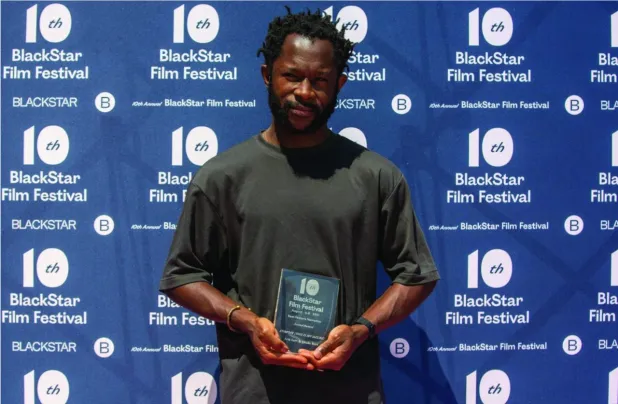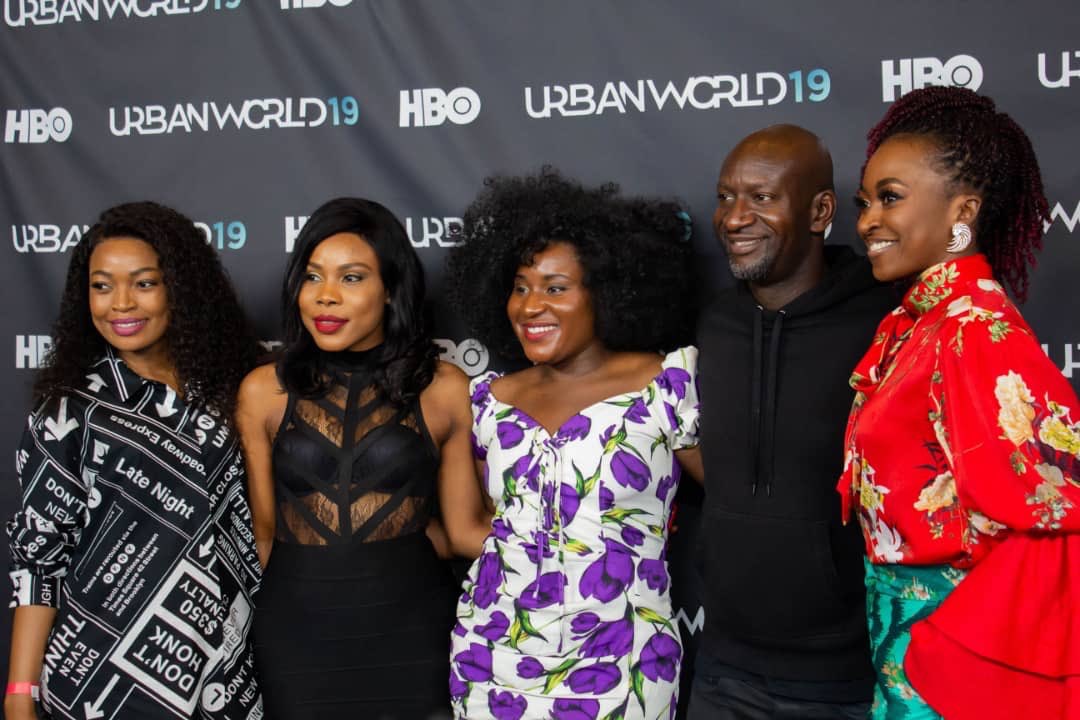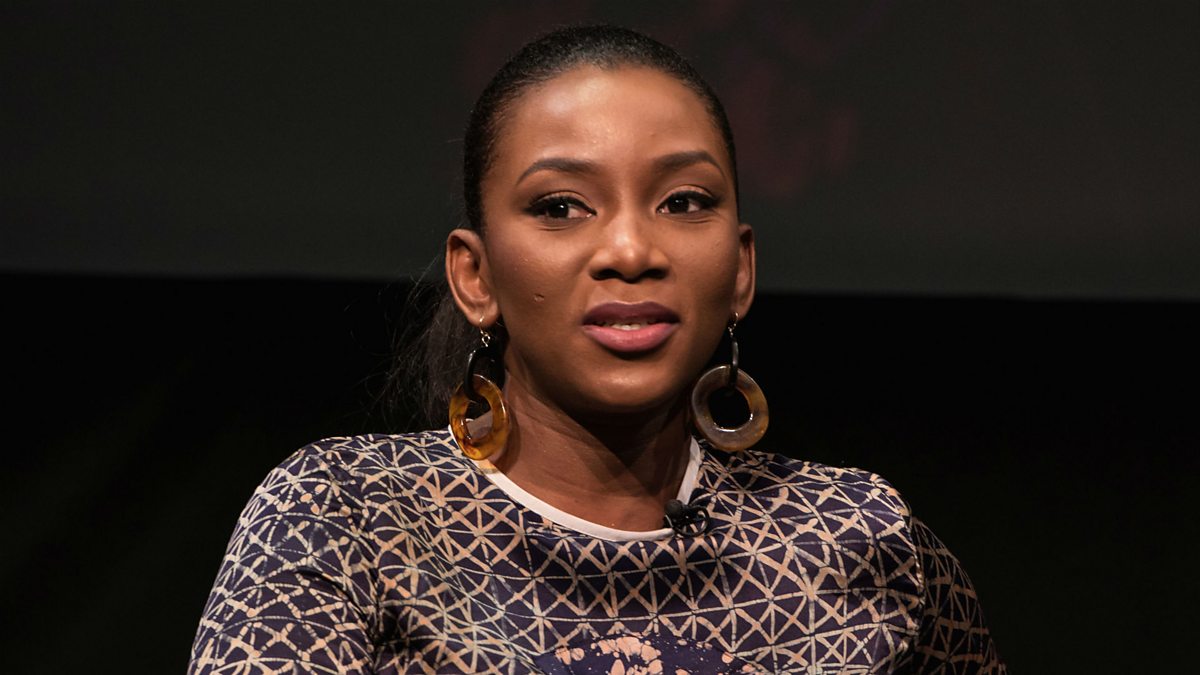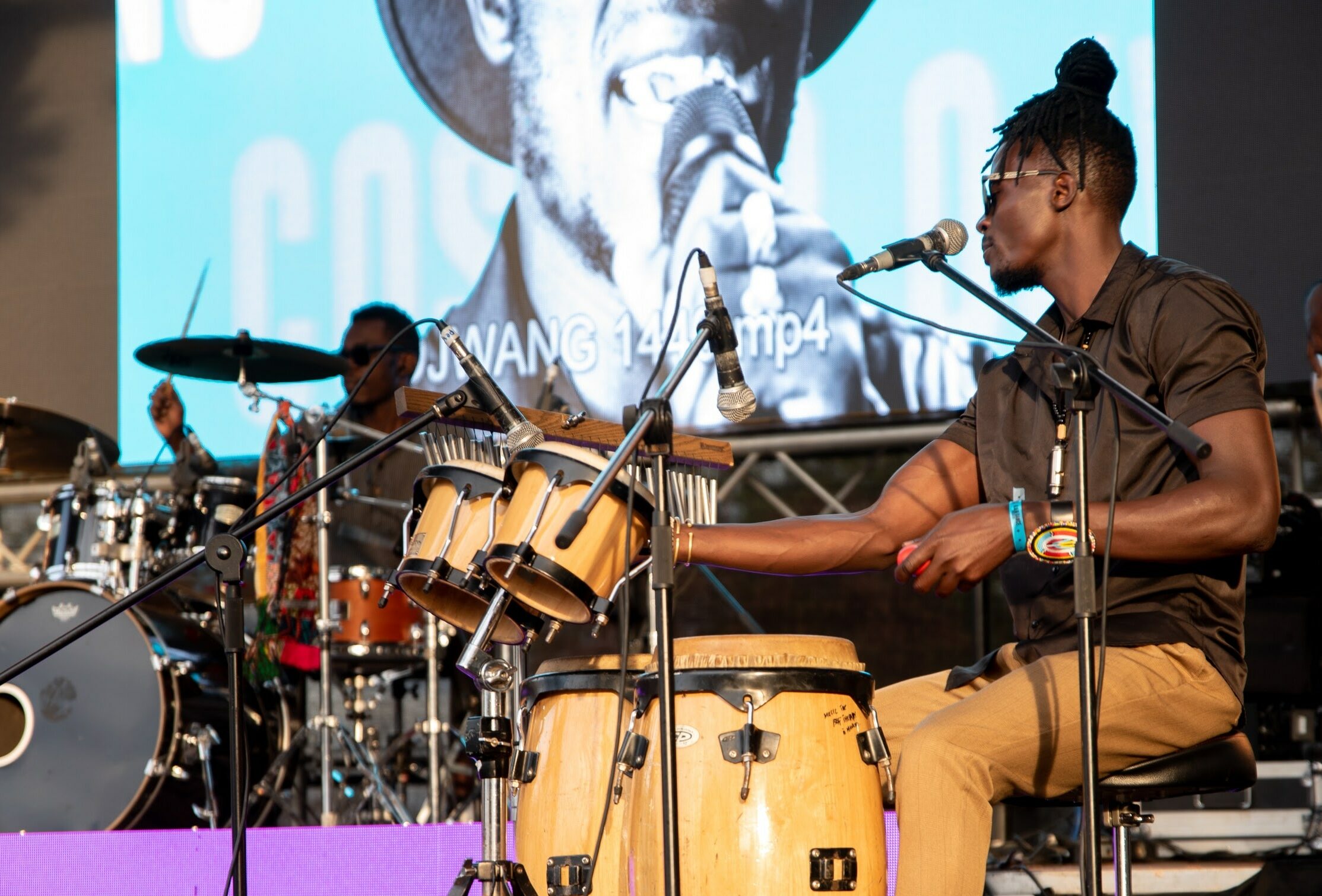With a population of approximately 213 million, Nigeria has the most dynamic film scene, famously known as the Nollywood Nigerian Film Industry. Emerging just over two decades ago, Nollywood swiftly gained global prominence by 2015. It ranked third worldwide after Hollywood and India’s Bollywood. This meteoric rise to international recognition was amplified by the inclusion of numerous Nigerian movies on the renowned online streaming platform Netflix.
Nigeria’s thriving movie industry is attractive, because of the massive viewership across Africa and beyond. This influence prompts an exploration of both the positive and negative aspects observed within Nigerian cinema over the years. Producers, actors and directors that propelled Nollywood to the global stage, and what the future holds for this huge industry.
So, what is Nollywood?
Nollywood, Nigeria’s film industry, is the third-largest globally after India’s Bollywood, and America’s Hollywood. The name is coined from the names ‘Bollywood’ and ‘Hollywood.’ Nollywood industry includes Nigerian movies made in Africa and abroad. It also includes specific language-based industries like Yoruba, Igbo, and Hausa, as well as films from Ghana and Nigerian productions from other countries.
Nollywood History
Nigeria’s film industry started in the early 1900s, initially controlled by white colonial and foreign filmmakers. It wasn’t until Nigeria gained independence in 1960 that local filmmakers ventured into producing movies. In the booming 1970s, Nigerians, enjoying increased income from oil and foreign investments, embraced movies. This led to the emergence of theaters in Lagos, the nation’s largest city, showcasing both local and international films.
Shift to Video
In the 1980s, there was a decline in Nollywood audio filming, because of currency devaluation and equipment shortages. This era birthed the Nigerian video film industry. The players released movies shot on home video directly to TV and sold VHS copies in local markets. The 1992 film “Living in Bondage” turned video films into a blockbuster, setting a new standard.
Rise of Nollywood
Video films transformed the industry into the global powerhouse known as “Nollywood,” a major employer in Nigeria. The industry produced up to five films daily for a vast audience across Nigeria and other African nations.
New Nigerian Cinema
Despite the success, video films had limited budgets. Investment and the emergence of modern cinemas in the 2000s ushered in the New Nigerian Cinema. It was characterized by high production quality, talented actors, and intricate stories. Hit films like “Irapada” (2006) and “The Wedding Party” (2016) set box office records and garnered international attention.
Present Day
The cinematic shift propelled Nigeria’s film sector to second place globally, surpassing even the United States. It became the third most profitable industry valued at $5.1 billion in 2013, contributing significantly to the country’s GDP. Recent Nollywood movies and TV shows, backed by distribution deals with Western streaming platforms, now enjoy a global audience.
The Origin of Nollywood
The exact origins of the term “Nollywood” remain uncertain. Potentially, it stems from two distinct articles published in the New York Times in 2002, discussing Nigerian filmmaking. Both articles, authored by Matt Steinglass and Norimitsu Onishi, employ the term to characterize the nation’s film industry. To this day, the US media continues to utilize “Nollywood” as a common term describing Nigeria’s movie industry. It also includes films from neighboring African countries, and African cinema crafted in what’s perceived as the “Nollywood style.”
Why is the term Nollywood Controversial?
The word “Nollywood” has caused disagreements for a few reasons. Some say it reminds them of Nigeria’s past as a colony, while others think it implies that Nigerian movies copy Bollywood and Hollywood, ignoring their own achievements and cultural heritage. Filmmakers like Kunle Afolayan and Tunde Kelani feel the term overlooks an important time in Nigerian movie history before it became popular in the West in the 2000s.
Famous Nigerian Movies
‘76’ (2016)
Director Izu Ojukwu’s amazing movie, “76,” is a detailed story set in the past. It stars Rita Dominic, Ramsey Nouah, and Chidi Mokeme, who deliver fantastic performances. The movie uses historical events as a backdrop for a young couple facing a tough situation. “76” is big, ambitious, and creative. It happens six years after a war and tells a made-up story about the aftermath of a coup that killed a former leader. By embracing culture and history, “76” shows that movies don’t have to be flawless to be great.
‘Eyimofe’ (2020)

The movie “Eyimofe,” directed by twin brothers Arie and Chuko Esiri, became a hit. It premiered at the Berlinale in 2020 and got added to the Criterion Collection. It tells two stories about people living in Lagos, Nigeria, who dream of living in other countries. The movie shows what it’s like to be Nigerian today. The main characters, an electrician (played by Jude Akuwudike) and a bartender (played by Temi Ami-Williams), want to move to Spain and Italy. But life in Lagos has different plans for them.
You can watch it on Prime Video, HBO Max
The Ghost and the House of Truth’ (2019)

Ego Boyo, as a producer, has quietly changed things, making new rules and showing how things should be done with every project. From working with Amaka Igwe on movies like “Violated” and “To Live Again” to reshaping romantic comedies in Nollywood with “Keeping Faith,” she’s always been ahead. That’s why her newest movie, “The Ghost and the House of Truth,” directed by Akin Omotoso, feels like a summary of her whole career.
This slow-paced drama talks about the problem of missing kids, focusing on emotions rather than showing too much sadness. It’s a strong story about understanding others, and it’s both uplifting and heartbreaking.
Watch it on Prime Video, BET Plus, Showmax
Osuofia in London (2003)

Osuofia in London” is a funny movie about a man named Osuofia who travels from Nigeria to London. He experiences culture shock and gets into humorous situations while trying to adapt to life in London.
‘Lionheart’ (2018)
This list doesn’t have many movies made directly for video because “Lionheart” shows how to blend better technology with the lively storytelling of the old days in Nollywood. It’s Nigeria’s first Netflix original, directed by Nollywood favorite Nnaji, who learned the ropes during the “golden era” of videos and DVDs. In “Lionheart,” Nnaji acts as a heiress in a transportation company that partners with her mischievous uncle to rescue their family business.
Watch it on Netflix
Streaming Services vs. Box Office
One may ask between streaming services such as Netflix, Prime Videos, and Box Office, which one is working for Nollywood.
Netflix influence on Nollywood
Hannatu Asheolge established that Netflix pays Nigerian filmmakers about $10,000 to $90,000 to buy streaming rights per film. The value depends on other factors such as the director’s credentials, film budget, and expected performance. Netflix has paid over ₦1.4 billion ($3.8 million), for Genevieve Nnaji’s 2018 movie, Lionheart. In comparison, the highest-earning theatrical releases, such as Omo Ghetto, amassed up to ₦636 million ($848,000).
Amazon Prime Video
On the other hand, Amazon Prime Video opts for licensing deals with production companies rather than individual film payments. During December 2021 and January 2022, the platform signed undisclosed, multi-year agreements with prominent production houses like Inkblot Productions and Anthill Studios. They secured exclusive rights to all their theatrical releases.
Showmax and Nollywood Nigerian Film Industry
Showmax, on the other hand, adopts an alternate approach by sharing revenue from advertising and sponsorships instead of upfront payments.
So, which one is better? Streaming or VCD distribution?
Xavier Ighorodje, a Nollywood writer and producer, highlights that while cinema releases historically generated substantial revenue compared to the VHS and VCD distribution models, the direct-to-streaming path has further improved filmmakers’ earnings.
“Previously, making profits in the film industry meant relying on cinema releases, paying a significant percentage to theaters—up to half—and distributors, who take another 20–25%” (Ighorodje). For instance, a ₦150 million movie earning ₦300 million doesn’t ensure profit due to these deductions. However, streaming platforms allow filmmakers to directly release films, paying only intermediaries. This results in retaining more net profit,”.
The downsides
Despite thousands of films produced daily, only a select few secure spots on major streaming platforms. Consequently, numerous, often smaller, filmmakers encounter limited avenues for film distribution. Although cinemas remain an option, they predominantly favor foreign movies, occupying over 75% of the market share, leaving smaller local productions with less exposure.
Famous Film Makers and producers in Nollywood
Genevive Nnaji

This list doesn’t have many movies made directly for video because “Lionheart” shows how to blend better technology with the lively storytelling of the old days in Nollywood. It’s Nigeria’s first Netflix original, directed by Nollywood favorite Nnaji, who learned the ropes during the “golden era” of videos and DVDs. In “Lionheart,” Nnaji acts as a heiress in a transportation company that partners with her mischievous uncle to rescue their family business. She has played a critical role in Nigerian films streaming on Netflix making her the biggest contributor towards the Nollywood Nigerian Film Industry
Tunde Kelani
Tunde Kelani, also called TK, started as a reporter for BBC and Reuters before becoming a filmmaker, photographer, and producer for forty years. He’s known for making movies based on books, like “Maami” in 2011 and “Dazzling Mirage” in 2014. His latest movie in 2021, “Ayinla,” was inspired by the life of Nigerian musician Ayinla Omowura.
Kunle Afolayan
Kunle Afolayan, son of Nigerian film and theater director Ade Love, started as an actor but later focused on directing. He’s known for successful movies like “The Figurine” (2009), “Irapada” (2006), and “Phone Swap” (2012). Afolayan also produces most of his films through his company, Golden Effects Pictures.
Jadesola Osiberu: Shaping Nigerian Cinema
Writer-director Jadesola Osiberu made an impactful entry into the film industry with her debut feature, the 2016 romantic comedy “Isoken,” which became the third highest-grossing Nigerian film in 2017. Her portfolio encompasses a variety of projects, from the well-received Ndani TV cultural series “The Juice” to the gripping crime drama “Nigerian Trade,” released in 2017. Establishing her production company, Tribe 85, that same year marked another significant step in Osiberu’s career trajectory.
Kemi Adetiba’s Role in Nollywood Nigerian Film Industry
Kemi Adetiba, once a radio presenter, studied film production at the New York Film Academy. She kickstarted her directing journey with a massive Nigerian hit in the twenty-first century, the 2016 romantic comedy “The Wedding Party.” Shifting gears dramatically, her second film, “The King of Boys,” delves into gritty crime drama and achieved success in 2018.
Bottomline
Nollywood, Nigeria’s vibrant film industry, has rapidly grown and gained global recognition. Known for its prolific production of movies, Nollywood has historically thrived on direct-to-video releases, catering to local and international audiences.
With the advent of streaming platforms like Netflix, Nollywood’s future has expanded significantly. These platforms offer broader access to Nigerian movies, allowing them to reach a global audience. The partnership between Nollywood and streaming services presents immense opportunities for increased exposure, better production values, and storytelling diversity. It’s revolutionizing the way Nigerian films are made, distributed, and consumed, giving rise to a promising future where the Nollywood Nigerian Film Industry continues to captivate audiences worldwide.



